

Tao Te Ching

Homer
850 BCE - ?
Primogenitor of Western culture
Called by Plato the “first teacher” and "leader of Greek culture,” Homer spread an immense influence over all Western culture. A blind bard prophet, his books the Iliad and Odyssey represent the first European literature as well as one of the main influences that shaped Western culture. The “Greek Bible,” these books taught the best behavior for almost any situation with true and timeless images of human goodness and wisdom. Describing the most enduring legends known to the Western world, these universal themes inspire and enlighten.
Lineages
Artists Greek Historians / Journalists Poets
Eras
Western
Egyptian Civilization (3150 – 305 BCE)Babylonian Civilization (1895 – 619 BCE)
The Axial Age, “The Great Leap of Being” (800 – 200 BCE)
Chinese
Western Zhou 西周 (1046 – 771 BCE)Sources
Unlisted Sources
Quotes by Homer (43 quotes)
“A small rock holds back a great wave.”
Chapters:
60. Less is More
Comments: Click to comment
“Any moment might be our last. Everything is more beautiful because we're doomed. You will never be lovelier than you are now. We will never be here again.”
from Iliad
Chapters:
24. Unnecessary Baggage
Comments: Click to comment
“Empty words are evil.”
Chapters:
56. One with the Dust
Comments: Click to comment
“How prone to doubt, how cautious are the wise!”
from Iliad
Chapters:
63. Easy as Hard
Comments: Click to comment
“I didn't lie! I just created fiction with my mouth!”
Chapters:
65. Simplicity: the Hidden Power of Goodness
Comments: Click to comment
“I say no wealth is worth my life!”
Chapters:
44. Fame and Fortune
Comments: Click to comment
“Life is largely a matter of expectation.”
Chapters:
81. Journey Without Goal
Comments: Click to comment
“The journey is the thing.”
Chapters:
81. Journey Without Goal
Comments: Click to comment
“There in the heat of Love, the pulsing rush of Longing, the lover’s whisper, irresistible–magic to make the sanest man go mad.”
Chapters:
41. Distilled Life
Comments: Click to comment
“Discontent springs from a constant endeavor to increase the amount of our claims when we are powerless to increase the amount which will satisfy them.”
from Odyssey, Ὀδύσσεια
Comments: Click to comment
“Wake, wake up! See with your own eyes what all these years you longed for!”
from Odyssey, Ὀδύσσεια
Comments: Click to comment
“The glorious heaven stretches itself to its widest and the multitudinous stars sparkle
Gladdening the hearts of the toil-wearied shepherds
While champing, war-wearied horses close by their chariots wait the coming of gold-throned dawn.”
from Iliad
Comments: Click to comment
“Men grow tired of sleep, love, singing and dancing sooner than war.”
from Iliad
Comments: Click to comment
“'Tis man's to fight, but Heaven's to give victory.”
from Iliad
Comments: Click to comment
“All strangers and beggars are from Zeus, and a gift, though small, is precious.”
Comments: Click to comment
“there is nothing greater and better than this—when a husband and wife keep a household in oneness of mind”
Comments: Click to comment
“murderous, doomed, that cost the Achaeans countless losses, hurling down to the House of Death so many sturdy souls, great fighters' souls, but made their bodies carrion, feasts for the dogs and birds.”
from Iliad
Comments: Click to comment
“Ah, no wonder the men of Troy and Argives under arms have suffered years of agony all for her, for such a woman. Beauty, terrible beauty!”
from Iliad
Comments: Click to comment
“As is the generation of leaves, so is that of humanity.”
from Iliad
Comments: Click to comment
“And some day let them say of him: 'He is better by far than his father.'”
from Iliad
Comments: Click to comment
“And fate? No one alive has ever escaped it, neither brave man nor coward, I tell you—it's born with us the day that we are born.”
from Iliad
Comments: Click to comment
“As when the moon, refulgent lamp of night,
O'er heaven's clear azure spreads her sacred light,
Then shine the vales, the rocks in prospect rise,
A flood of glory bursts from all the skies.”
from Iliad
Comments: Click to comment
“Who dares think one thing, and another tell, my heart detests him as the gates of hell.”
from Iliad
Comments: Click to comment
“Life and death are balanced as it were on the edge of a razor.”
from Iliad
Comments: Click to comment
“A physician is worth more than several other men put together, for he can cut out arrows and spread healing herbs.”
from Iliad
Comments: Click to comment
“To some the powers of bloody war belong, to some, sweet music, and the charm of song; To few, and wondrous few, has Jove assigned a wise, extensive, all-considering mind.”
from Iliad
Comments: Click to comment
“No shame in running,fleeing disaster, even in pitch darkness. Better to flee from death than feel its grip.”
from Iliad
Comments: Click to comment
“In this was every art, and every charm,
To win the wisest, and the coldest warm:
Fond love, the gentle vow, the gay desire,
The kind deceit, the still reviving fire,
Persuasive speech, and more persuasive sighs,
Silence that spoke, and eloquence of eyes.”
from Iliad
Comments: Click to comment
“If only strife could die from the lives of gods and men and anger that drives the sanest man to flare in outrage—bitter gall, sweeter than dripping streams of honey, that swarms in people's chests and blinds like smoke.”
from Iliad
Comments: Click to comment
“The recklessness of their own ways destroyed them all.”
from Odyssey, Ὀδύσσεια
Comments: Click to comment
“See now, how men lay blame upon us gods for what is after all nothing but their own folly.”
from Odyssey, Ὀδύσσεια
Comments: Click to comment
“My soul shall bear that also; for, by practice taught, I have learned patience, having much endured.”
from Odyssey, Ὀδύσσεια
Comments: Click to comment
“And may the gods accomplish your desire: a home, a husband, and harmonious converse with him – the best thing in the world being a strong house held in serenity where man and wife agree. Woe to their enemies, joy to their friends!”
from Odyssey, Ὀδύσσεια
Comments: Click to comment
“Jove weighs affairs of earth in dubious scales, and the good suffers, while the bad prevails.”
from Odyssey, Ὀδύσσεια
Comments: Click to comment
“a friend with an understanding heart is worth no less than a brother.”
from Odyssey, Ὀδύσσεια
Comments: Click to comment
“The blessed gods have no love for crime. They honor justice, honor the decent acts of men.”
from Odyssey, Ὀδύσσεια
Comments: Click to comment
“Meanwhile let us two, here in the hut, over our food and wine, regale ourselves with the unhappy memories that each can recall. For a man who has been through bitter experiences and traveled far can enjoy even his sufferings after a time.”
from Odyssey, Ὀδύσσεια
Comments: Click to comment
“Man is the vainest of all creatures that have their being upon earth.”
from Odyssey, Ὀδύσσεια
Comments: Click to comment
“The immortals give each thing its proper place in our mortal lives throughout the good green earth.”
from Odyssey, Ὀδύσσεια
Comments: Click to comment
“Good sir, sit still and hearken to the words of others that are thy betters. (Quoted by Socrates and the cause of his indictment.)”
from Iliad
Comments: Click to comment
“Discontent springs from a constant endeavor to increase the amount of our claims, when we are powerless to increase the amount which will satisfy them.”
from Odyssey, Ὀδύσσεια
Comments: Click to comment
Quotes about Homer (16 quotes)

“Notwithstanding the veneration due and paid to Homer, it is very strange, yet true, that among the most learned, and the greatest admirers of antiquity, there is scarce one to be found who ever read the Iliad with that eagerness and rapture which a woman feels when she reads the Novel of Zaïda... The common part of mankind is awed with the fame of Homer, rather than struck with his beauties.”
Comments: Click to comment

“This Fire is discerned in Virgil, but discerned as through a glass, reflected from Homer, more shining than fierce, but every where equal and constant.
”
Comments: Click to comment
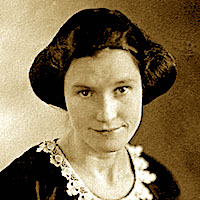
“An ancient writer says of Homer that he touched nothing without somehow honoring and glorifying it.”
Comments: Click to comment
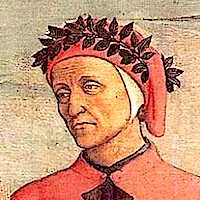
“Homer is pre-eminent among poets, for he alone combined dramatic form with excellence of imitation, so he too first laid down the main lines of comedy, by dramatizing the ludicrous instead of writing personal satire.”
Comments: Click to comment
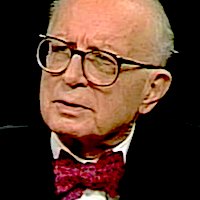
“Who was Homer? The ancient Greeks had no doubt that Homer was a real person... This so-called Homeric Question has provoked some of the bloodiest professorial battles. Speculation about Homer has itself spawned fantasies of epic proportions. Homer himself became a myth.”
Comments: Click to comment
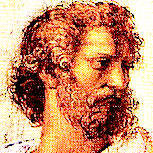
“It is Homer who has chiefly taught other poets the art of telling lies skillfully.”
Comments: Click to comment
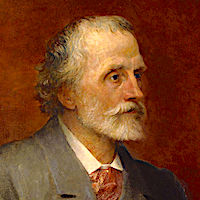
“Pindar astounds, but Homer brings the more sustaining cup. One is a fountain of prodigious ascent; the other, the unsounded purple sea of marching billows.”
Comments: Click to comment
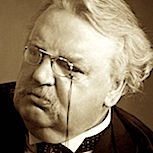
“A poet who may have been a beggar and a ballad-monger, who may have been unable to read and write, and was described by tradition as blind, composed a poem about the Greeks going to war with this town to recover the most beautiful woman in the world... that the most beautiful poem in the world was written by somebody who knew of nothing larger than such little towns is a historical fact.”
Comments: Click to comment
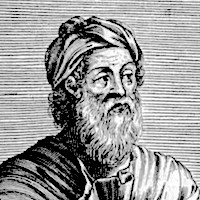
“Homer and Hesiod have attributed to the gods all sorts of things that are disreputable and worthy of blame when done by men: theft, adultery, and mutual deception.”
Comments: Click to comment
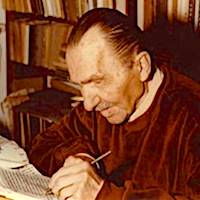
“I always had a book in my hand, sometimes Dante, sometimes Homer. As I read the immortal verses, I felt that man could become immortal and that the world's heterogeneous surfae of houses, people, joys, insults—the incoherent chaos we call life—was capable of uniting into harmony.”
Comments: Click to comment

“In Homer’s day life was action, and Homer was action’s prophet. Through his turbulent hexameters, the story runs like some broad and power stream, his verse and style, dictated by action… We give his name to all the poets who compound these tales because we are at ease with unity, and dislike the fragmentariness of truth”
Comments: Click to comment
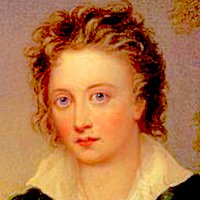
“Homer embodied the ideal perfection of his age in human character; nor can we doubt that those who read his verses were awakened to an ambition of becoming like to Achilles, Hector, and Ulysses: the truth and beauty of friendship, patriotism, and persevering devotion to an object, were unveiled to the depths in these immortal creations.”
Comments: Click to comment
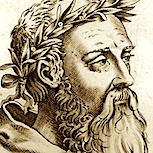
“When Homer said that he wished war might disappear from the lives of gods and men, he forgot that without opposition all things would cease to exist.”
Comments: Click to comment
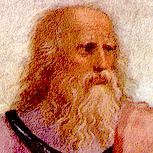
“[Homer was] the greatest of poets and the first of tragedy writers [but unfortunately he became] the educator of Hellas [and the gude] for the ordering of human things.”
Comments: Click to comment
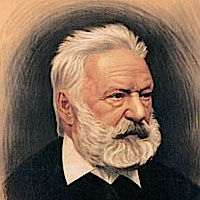
“Homer is one of the men of genius who solve that fine problem of art — the finest of all, perhaps — truly to depict humanity by the enlargement of man: that is, to generate the real in the ideal.”
Comments: Click to comment
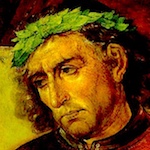
Comments (0)